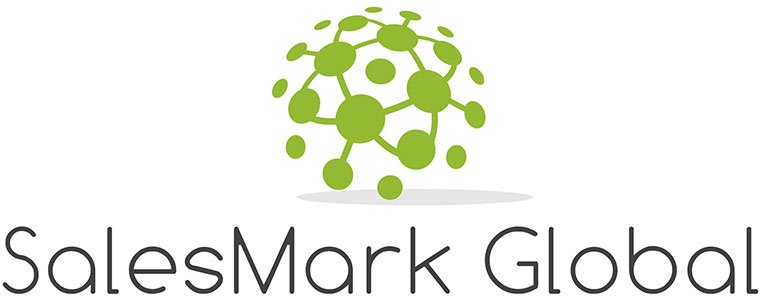Explore nine AI-driven sales strategies for small businesses in 2025. Learn how AI boosts growth, improves customer insights, and accelerates revenue.
The concept of artificial intelligence is not a futuristic one anymore, but a necessity in sales today. Small businesses cannot afford to use traditional strategies only as an engagement tool, demand prediction, or market optimization in 2025. AI can provide startups and SMEs with scalable and data-driven solutions, enabling them to compete with larger businesses. These technologies allow making smarter decisions and responding quicker, whether it is predictive analytics or AI-powered customer service.
This article will discuss nine practical AI sales tips that can assist small businesses to expand more efficiently, to gain more income, and to remain competitive in a more automated marketplace.
Table of Contents
1. Leverage Predictive Analytics to Anticipate Customer Needs
2. Personalize Customer Interactions With AI Chatbots
3. Automate Lead Scoring and Prioritization
4. Enhance Email Campaigns With AI-Powered Insights
5. Optimize Pricing With Machine Learning Models
6. Improve Sales Forecast Accuracy
7. Use AI for Competitor Analysis
8. Implement AI-Powered CRM Systems
9. Apply AI to Upselling and Cross-Selling Opportunities
Conclusion
1. Leverage Predictive Analytics to Anticipate Customer Needs
Predictive analytics is a method based on historical data, machine learning, and statistical algorithms that are used to predict customer behavior and sales patterns.
In the case of a small business, this involves determining what products or services are likely to be purchased by customers and at what time. Through the analysis of trends in the previous transactions, companies may predict demand, customize marketing efforts, and minimize wastage of inventory.
Such tools as HubSpot AI and Salesforce Einstein enable even small teams to make use of these insights without investing heavily in data science. With the implementation of predictive analytics, companies can achieve a competitive advantage, anticipate customer needs, generate conversions, and grow via more intelligent, evidence-based decisions.
2. Personalize Customer Interactions With AI Chatbots
Small businesses can now enjoy 24/7 customer interaction through AI chatbots and respond to customer inquiries immediately, and direct the potential customer along the sales channel.
Modern chatbots, unlike generic automated replies, are based on natural language processing, which facilitates individualized, human-as-you-talk interactions. This enhances customer satisfaction to the customers, speed of lead nurturing and leaves the sales teams with the high-value activities.
Many platforms, such as Drift, Intercom, and ManyChat, are available to small businesses and can be integrated with their websites or messaging applications. Individualized chatbot experiences, besides intensifying the customer experience, raise the chances of returning to purchase as well as recommend the product or service to others, and assist small-scale enterprises in expanding effectively in a competitive online context.
3. Automate Lead Scoring and Prioritization
Basing scored leads on behavior, engagement, and other demographic data, AI-based lead scoring can assist sales teams in focusing on high-value leads. In the case of small businesses that do not have many resources, this means that efforts are directed to the prospects that have the highest chance of conversion. Automated lead scoring uses no guesswork, the human error is minimized and sales cycle.
Various tools, such as Zoho CRM and Salesforce Einstein, enable the teams to rank leads automatically, to track engagement, and to optimize follow-ups. The targeting of the correct opportunities can enable the conversion rates of small businesses to grow, and the amount of wasted time to decrease, maximizing the earnings, which makes the sales process easier and more scalable.
4. Enhance Email Campaigns With AI-Powered Insights
The AI software processes the email interaction data to optimize targeting, timing and content.
Businesses with limited resources can divide audiences, tailor messages, and determine which subject lines and pieces of content will result in the most opens and click-through. Machine learning platforms such as Mailchimp, ActiveCampaign and HubSpot AI are able to test variants automatically, which provides smarter campaigns at scale.
Email personalization with the use of AI enhances customer retention, optimal engagement, and ROI. Through the incorporation of AI data, organizations will make informed decisions through the use of data, and their marketing tactics will be attuned to the case of individual clientele, whilst reducing manual trial-and-error techniques in email marketing tactics.
5. Optimize Pricing With Machine Learning Models
The AI-based price optimization helps to modify the price according to the market need, competitor price adjustments, and customer activity. Small business entities will be able to execute real-time pricing mechanisms without necessarily driving a manual measurement, boosting revenue and maintaining competitiveness.
Such platforms as Prisync or Pricefx enable start-ups to optimize pricing, simulate and forecast effects of changes. Increasing the value of price elasticity of businesses and, at the same time, maintaining competitiveness among price-sensitive customers is guaranteed by dynamic pricing.
In the case of small companies with small profit margins, AI-based pricing systems are an effective, evidence-based approach to achieving profit and customer retention, leading to customer retention and brand development in a highly dynamic market.
6. Improve Sales Forecast Accuracy
Proper sales forecasting is essential in making inventory plans, resource allocation plans, and marketable growth objectives. Artificial intelligence models use historical data, seasonality and market trends to give accurate projections.
The tools, such as Anaplan, HubSpot AI, or Tableau, can provide small businesses with actionable insights without any sophisticated analytics teams. Increased accuracy will enhance financial planning and decrease stockouts, as well as customer satisfaction.
By determining the changes in the revenue and modifying the strategies so that the changes can be responded to before they occur, the businesses will be able to react proactively to the changes in the market. Forecasting based on AI allows small businesses to make well-informed decisions, reduce risks and effectively distribute resources, which will help them grow sustainably in competitive markets.
7. Use AI for Competitor Analysis
Competitor intelligence management tools that use AI track pricing, promotions, and marketing programs in the industry. On the one hand, small businesses might trace the activity of their competitors in time, detect the gaps in the market, and alter their strategies.
Applications such as Crayon, Kompyte, and Klue offer automatic insights without the need to have huge analytics teams. Knowledge of competitor behavior enables companies to position their products more effectively, improve their messaging and take opportunities fast.
AI allows startups to be flexible, adapt to market changes, and have a competitive edge even with limited budgets. Competitor analysis implemented through AI provides small businesses with intelligence capable of powering smarter decisions, as well as deploying growth strategies faster.
8. Implement AI-Powered CRM Systems
AI-based customer relationship management (CRM) systems are systems that monitor customer experiences in real time, anticipate behaviors and offer actionable information. Small businesses will have the opportunity to simplify the sales processes, organize contacts, and find engagement opportunities.
Automation, analytics and personalization are built into one system through platforms such as Salesforce, Zoho CRM and HubSpot AI. AI CRMs enhance the productivity of sales teams by automating some routine activities like follow-ups, reminders, and pipeline updates.
With the help of these insights, small businesses will be able to maintain relationships more efficiently, get more people to convert, and provide people with a better customer experience, which will lead to more income and long-term growth.
9. Apply AI to Upselling and Cross-Selling Opportunities
AI examines purchasing history, browsing data, and preferences of the customers to determine upselling and cross-selling user points. Individual recommendations help to boost average order value and customer loyalty.
All interactions are streamlined, and relevant products are recommended automatically by platforms such as Shopify AI, Salesforce, and HubSpot. Specific promotions can be made to the small businesses without having to analyze the data manually, which saves time and enhances ROI. Implementing
AI-based recommendations to e-commerce platforms or sales processes, companies can optimize the revenue through current customers, increase customer satisfaction, and promote repetitive purchasing and will become a growth engine that scales into generating long-term business success.
Conclusion
The new approach to sales by AI is making sales smarter, faster, and more personalized, especially for small businesses.
The above-mentioned nine strategies can work as solutions to increase revenue, optimize operations, and enhance customer engagement, from predictive analytics to AI-driven CRMs.
Small enterprises that are first to adopt AI will be able to compete with bigger companies, minimize inefficiencies, and open up growth opportunities. By the year 2025, the strategy of AI sales will not only be a competitive edge, but it will be necessary to survive. The intelligent use of AI will help small businesses a sustainable growth and long-term success.
Visit Our SalesMarkBlog Section to Uncover the Sales Strategies That Ignite Your Sales Journey!





